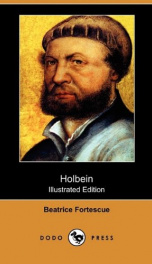Holbein

Hans Holbein the Younger (1497-1543) was a German artist and printmaker who worked in a Northern Renaissance style. He is best known as one of the greatest portraitists of the 16th century. When the Reformation reached Basel, he worked for reformist clients while continuing to serve traditional religious patrons. His Late Gothic style was enriched by artistic trends in Italy, France, and the Netherlands, as well as by Renaissance Humanism. The result was a combined aesthetic uniquely his own. He travelled to England in 1526 in search of work, with a recommendation from Erasmus. He was welcomed into the humanist circle of Thomas More, where he quickly built a high reputation. After returning to Basel for four years, he resumed his career in England in 1532. This time he worked for the twin founts of patronage, Anne Boleyn and Thomas Cromwell. By 1535, he was King's Painter to King Henry VIII. In this role, he produced not only portraits and festive decorations but designs for jewellery, plate, and other precious objects. Holbein has also been described as a great "one-off" of art history, since he founded no school.
Info about the book
Author:
Series:
Unknown
ASIN:
B0082SWX7A
Rating:
3.5/5 (1)Your rating:
0/5
Languge:
English
Users who have this book
Users who want this book
What readers are saying
What do you think? Write your own comment on this book!
write a commentif you like Holbein try:
Other books by this author
Do you want to read a book that interests you? It’s EASY!
Create an account and send a request for reading to other users on the Webpage of the book!

